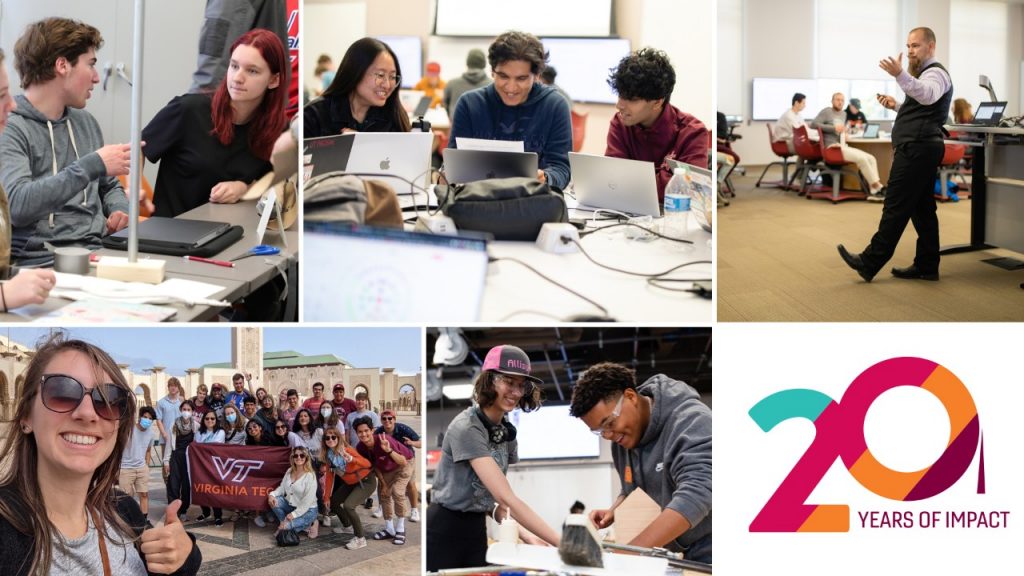Robust scholarship paves a path forward
As an R1 institution and land-grant university, Virginia Tech aims to be a leader in designing programs and implementing solutions that will give all students access to an engineering education. Faculty and Ph.D. research in engineering education contributes to, and even creates, such initiatives, while often setting the bar for other engineering programs.
Professor David Knight, founder of the Data Enlightened Educational Practices lab and special assistant to the dean for strategic plan implementation, describes the department’s areas of research in four “buckets.”
- Teaching and learning: Focuses on pedagogical issues and associated psychological processes in both curricular and co-curricular settings
- Organizations and systems: Refers to interpersonal interactions and organizational issues that occur within and across systems in both academia and industry
- Ethics and social responsibility: Investigates the decision-making of engineers, factors influencing those decisions, and the consequences of those decisions throughout engineering and engineering education
-
Equity and culture: Analyzes policies, practices, and the experiences of specific subpopulations within and across educational and workplace environments.
“Across many of our projects, we want to understand how we can best prepare students so they can thrive in a variety of career paths,” Knight said. “What can we do to ensure all students have access to resources, support, and experiences to develop their potential?”
The breadth of faculty research, supported by agencies such as the National Science Foundation, impact a variety of populations and demographics. Nationwide, the department’s initiatives also pave new paths forward for other universities seeking to elevate and expand upon engineering education programming. Recently funded endeavors include promoting collective agency among Black discipline-based education researchers, exploring integrity and ethical impact when growing a culture of responsible research, and developing instructional models to intentionally and holistically engage with student needs.
There is also work happening outside of Virginia Tech, which includes partnering with other colleges and universities to learn how to best design, develop, and implement partnerships that support underserved students within and across institutions. Knight, for example, is involved with higher level college initiatives including the PROTEGE collective, which focuses on improving graduate education in the college of engineering. Led by principal investigator Julie Ross, the Paul and Dorothea Torgersen Dean of Engineering, the project seeks to evaluate all of the college’s graduate education systems, from recruitment to admissions to assistantship funding to career preparation, so that they work better for all students.
Some of the faculty’s impactful research collaborations:
- Developing a stackable artificial intelligence (AI) credential at a major national community college, funded by the National Science Foundation
- Bringing rural young people into closer contact with engineering careers through VT PEERS, engaging nearly 2,000 Appalachian middle-schoolers in hands-on activities designed by local industry partners
- Partnering with 20 institutions to improve the experiences of students currently enrolled in graduate programs and supporting over 130 historically marginalized late-stage students through the Dissertation Institute.
- Linking institutions across Virginia through the Virginia Tech Network For Engineering Transfer Students (VT-NETS), which puts practical measures in place to support over 120 transfer students
“We really try to understand the institutional partnerships required for transfer students and engineering students with financial need to thrive,” Knight said of the Virginia Tech-led S-STEM Research Hub and VT-NETS. “We work with constituents like the financial aid office and the Center for the Enhancement of Engineering Diversity to provide better resources on campus.”

